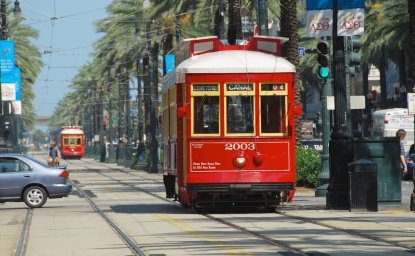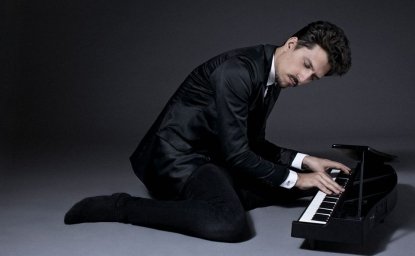
Few places on the planet are more hip than Brooklyn’s National Sawdust, which, according to its website, as “an unparalleled, artist-led, non-profit venue, is a place for exploration and discovery. A place where emerging and established artists can share their music with serious music fans and casual listeners alike.”
Housed in the shell of a former sawdust factory in the “Hipster Central” Williamsburg section of Brooklyn, there is little that is traditional about the place. Thanks to the teamwork of leading architects with Bureau V and acoustic engineers at Arup Acoustics, National Sawdust has emerged as one of New York’s premier venues for contemporary music. The stately New Yorker magazine covers its season openings together with those of the august Metropolitan Opera a few miles and cultural lightyears away on Manhattan’s Upper West Side.
Despite all the trappings of planned spontaneity and crafted informality, National Sawdust is a most serious place for performers and inventors of contemporary music to launch a new work. Critics notice when a small, Toronto-based contemporary opera company that gets to its performances by bicycle premiers a new work at the Sawdust.
The Village Voice did in October 2016, for example, when it declared the immediacy of the National Sawdust’s 200 seat space combined with the proximity of the singers’ live voices to forge an empathetic connection among the audience, performers and the nameless sweatshop workers around whom the story swirls in The Bicycle Opera Company’s a cappella chamber opera Sweat. Just as important for company founder and artistic director Larissa Koniuk would be the show’s subsequent 600 kilometer, two-week bicycle tour through the un-hip towns of Southern Ontario.
Contemporary Canadian opera has prospered in recent years as companies large and small--such as Toronto’s Tapestry Opera and the Toronto Symphony Orchestra’s New Creations program--have promoted contemporary opera and choral works. Toronto-based soprano Koniuk has built a successful singing and acting career gaining particular notice for her interpretations of new vocal compositions. She has become a “go-to” performer for works ranging from The Bells of Baddleck--a music-drama about Alexander Graham and Mabel Bell performed at the Alexander Graham Bell National Historic Site in Baddeck, Nova Scotia--to engagements in Toronto, Montreal and Los Angeles.
The company’s mission has been to bring the vibrant music being written in Canada to audiences for whom it is unknown. An enthusiastic environmentalist and cycler, Koniuk joined with singer/ethnomusicologist Nadia Channa in 2012 to launch summertime operatic bicycle expeditions across Ontario. As the Bicycle Opera Company grew, the circuits extended to Nova Scotia; as the newly commissioned works became more ambitious, the company began extended stays in Toronto and, in 2016, in Brooklyn.
The company of a dozen or so performers and support staff typically arrive in town before sunset, perform the next day, and move on. Some productions require that costumes, props and larger instruments such as cellos are transported in carriages attached to cycles. Their cycle caravan catches the attention of audiences and resident media alike. Minor on-the-road mishaps (such as busted tubes and broken spokes) frequently lead to chance encounters with locals along the road who invariably become fans.
This exoticism captures attention of many who have never given much thought to contemporary music. The company’s high quality performances and promotion of important innovative new work lures in serious aficionados, as their performances of the new opera Sweat demonstrated.
Librettist Anna Chatterton and composer Juliet Palmer set their opera in a generic contemporary sweatshop of indeterminate location to lure the audience into considering the workers themselves. Why were they doing such underpaid and difficult labor? What were their dreams? Had the move from the countryside improved their lives?
Prompted by the ethical dilemmas poised by their own shopping expeditions in search of discount clothing, Chatterton and Palmer recreate the sonic world of the factory floor with an a cappella chorus and no instrumentation. They set out the lives of the workers toiling under dingy conditions as they battle with one another and the larger world over forming a union. The factory owner and overseer want to lock the factory doors in response until all the orders for dresses have been fulfilled.
To reflect the global reach of the sweatshop economy, Chatterton wrote the words sung by the four leading characters in English, Cantonese, Tamil and Hungarian. In doing so, the creative team underscored the work’s immediate social commentary as they used the languages spoken in contemporary international media reports of worker abuse.
Sweat is but one of Bicycle Opera’s works which seeks to break down barriers between audiences and performers by highlighting the power of storytelling through the expressiveness of the human voice in intimate spaces. Cycling into town is another part of the package. The bike grease breaks down any lingering notions that opera must be an elitist enterprise.
Toronto in recent years has emerged as a global hotspot for contemporary music with many companies--such as Esprit Orchestra, New Music Concerts, Continuum, Contact and Music Gallery--focusing on a 21st century repertoire. The city is home to more than a half-dozen opera companies offering a variety of opera ranging from the large-scale classical productions of the Canadian Opera Company to small studio companies. Two opera companies--Tapestry and Bicycle--focus on contemporary work.
This ecosystem supports composers, musicians, singers, librettists and backstage workers alike, nurturing a steady flow of new works and the audience that appreciates them. Since its founding in 1979, for example, Tapestry Opera has premiered 160 opera shorts, twenty chamber operas or experimental operatic works and seventeen full length Canadian works.
Conventional wisdom suggests that Brooklyn is about as hip as hip can get at the moment. Yet, even Brooklyn did not nurture serious opera brought to new audiences on the wheels of cycles.
Artistic Visionaries and Community Creators
The power of the performing arts to nurture inclusive communities has been praised widely in recent years; so much so that “creative placemaking” is now seen as a powerful tool in community development. The supportive role of community in fostering artistic innovation is less acknowledged. This series highlights the work of visionaries for whom creating communities of students, protégés, audiences, and donors has become a strategic element in transforming their arts.
Author

Former Wilson Center Vice President for Programs (2014-2017); Director of the Comparative Urban Studies Program/Urban Sustainability Laboratory (1992-2017); Director of the Kennan Institute for Advanced Russian Studies (1989-2012) and Director of the Program on Global Sustainability and Resilience (2012-2014)
Explore More in Artistic Visionaries and Community Creators
Browse Artistic Visionaries and Community Creators
Mark and Susan Marie Rhea and Irish Theater

Hugo and Rebecca Medrano and Hispanic Theater

Andrew Kingsley, Andrew Vaught and Social Impact Theater

